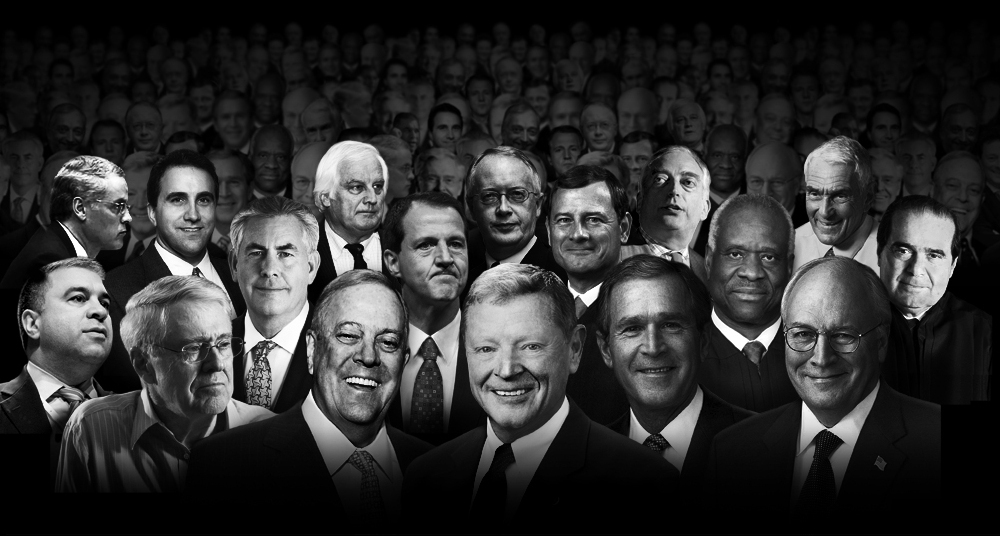Dick Cheney held several senior government positions over a political career that stretched more than 30 years, including his eight-year term as Vice President from 2001-2009.
Cheney's career in the private sector is highlighted by his work with the American Enterprise Institute (AEI) -- a highly conservative, oil industry funded think tank -- and his five year term (1995-2000) as CEO of Haliburton, one of the world's largest oilfield services companies.
Often referred to as the most powerful Vice President in American history, Cheney was a key decision-maker in the Bush White House. Largely focused on defense and security, he also pried himself into energy issues as well.
In 2001, Cheney established a secret "Energy Task Force," which was also known as the National Energy Policy Development Group. The purpose of this task force was to make recommendations to the president on formulating a new energy plan.
Although the full details of the task force's dealings have never been released, at the behest of Cheney, several reports surfaced claiming the fossil fuel industry was also part of the task force. In 2002, the Sierra Club and Judicial Watch sued the administration over its refusal to release documents. After a four year battle, including a Supreme Court ruling, the U.S. Court of Appeals ruled in favor of Cheney.
Some documents were released, however, and this much is known:
- The task force was keenly interested in Iraqi oil operations. The released documents show a map of Iraqi oil fields, pipelines, refineries, and terminals, as well as two charts outlining the country's oil and gas projects.
- In compiling its recommendations, the task force met with several prominent fossil fuel companies and lobbyists. The partial list includes: Royal Dutch Shell, Chevron, BP, ConocoPhillips, ExxonMobil, the American Petroleum Institute, the National Mining Association, and the U.S Oil and Gas Association. It did not meet with any environmental groups.
- Several of the recommendations made by these fossil fuel interests were included in the Task Force's final report.
- The 2005 Energy Act was a boon for the fossil fuel industry. It provided $6 billion in subsidies for oil and gas development, $1.5 billion in offshore oil drilling incentives, stripped the EPA's authority to regulate hydraulic fracturing, and weakened environmental protections for offshore drilling.
Cheney also played a prominent role in the administration's efforts to cloud climate science. In 2008, Jason Burnett, a senior climate advisor to the Environmental Protection Agency resigned over disagreements with the Agency's response to climate change.
In a letter to the Senate, Burnett said Vice President Cheney's office pushed him to remove "any discussion of the human health consequences of climate change" from the congressional testimony given by the head of the U.S. Centers for Disease Control (CDC).
CDC officials say the testimony was eviscerated and pared down from 14 pages to six. Any mention of specific diseases caused by pollution were removed from the document. A spokesperson for President Bush said the deletions were made to "reflect scientific uncertainty" on the issue. Burnett also claims Cheney tried to prevent EPA administrator Stephen Johnson from saying "greenhouse gas emissions harm the environment" during a 2008 testimony in California.
In a 2007 interview, Cheney was asked about climate science and human-induced global warming. His response was:
"There does not appear to be a consensus. But I think we're going to see a big debate on it going forward. But it's not enough just to sort of run out and try to slap together some policy that's going to 'solve' the problem."
Upon leaving Haliburton to assume the role of Vice President, Cheney received $34 million in compensation. He was still receiving deferred payments while in office.




